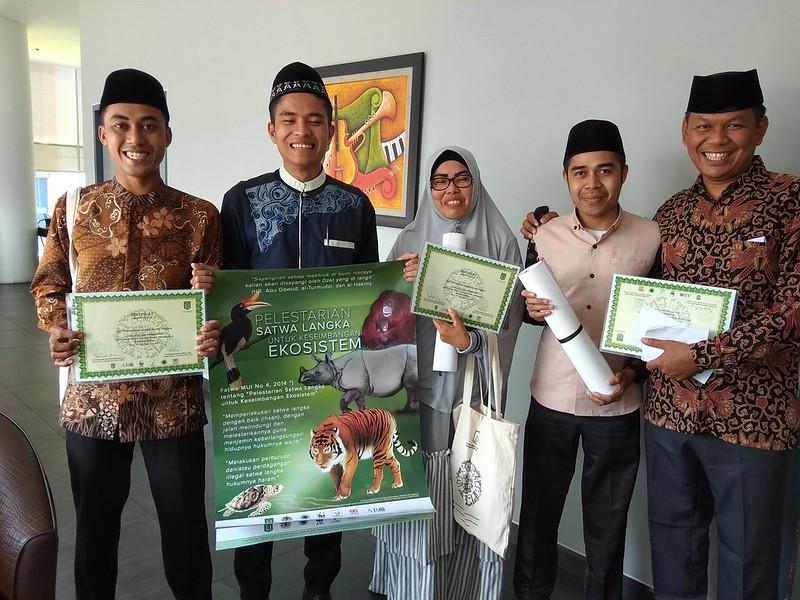Fachruddin Mangunjaya
Other projects
4 Aug 2008
Introducing the Islamic Hima and Harim System for New Approach to Nature Conservation in Indonesia
9 Jul 2010
Introducing the Islamic Hima and Harim System as a New Approach to Nature Conservation in Indonesia Phase II
7 Jun 2013
Developing of Ex situ-Biodiversity Project and Ecosystem Services Education for Islamic Boarding School in West Java, Indonesia
This project continues our work on conservation awareness in Indonesian pesantren. We will test our Islamic conservation kit for Muslim educators in a pilot project at a pesantren in the Rimbang Baling Wildlife Reserve landscape, Sumatra, where UNAS has been working on Islamic approaches to conservation since 2014. We will also develop our Ekopesantren website to increase participation in conservation by the 21,000 pesantren spread across Indonesia. This will include creating an online conservation tracking and ranking tool for pesantren, and at the end of the grant period, launching a national competition to recognise the most active and impactful pesantren.

Participants of conservation clerics happy to accept certificate after the training.
This is a one year project. There are two main project activities:
Activity 1. Pilot a fatwa-based teaching kit in Burhanudin Pesantren in Riau:
This project will develop a pilot project in Riau province to engage the pesantren community in wildlife conservation. There are 1,000 students at the Burhandin pesantren. Our hope is to create a model that can be spread to pesantren in other important wildlife conservation areas in Indonesia.
In September 2019 UNAS completed work on a teaching kit for educators at pesantren, based on the Islamic edict issued by the Majelis Ulama in 2014 prohibiting involvement in the illegal wildlife trade. This fatwa directs all Muslims in the country to protect threatened species and their habitats as part of their religious duty. This teaching tool covers five subjects in different chapters, including water, sanitation, energy, wildlife and climate change. In this project we will test out the wildlife conservation chapter to encourage students to become involved in conservation efforts, as the pesantren is located near the Rimbang Baling Wildlife Reserve, where poaching is a major threat to the survival of already rare species.
Activity 2. Developing a national web platform to encourage environment and wildlife conservation education in pesantrens:
Through previous projects UNAS set up a website for pesantren to access resources on environmental education in pesantren www.ekopesantren.com
Under this project we will expand this national platform as a way to inspire pesantren spread across Indonesia to participate in conservation. We will share the teachers kit and also develop a tool to track and rank participating pesantren according to their level of activity and impact on environment and conservation initiatives. At the end of the project we will launch a pesantren-wide competition for the best ranked pesantren. The rank will also include the 9 criteria of ecopesatren actions for environments and icluded their awareness to conservation of nature and climate change. Through the website we intend to create an open access, highly accessible and interactive tool that can help disseminate Islamic faith-based conservation messages to inform, inspire and connect Muslim students across Indonesia.